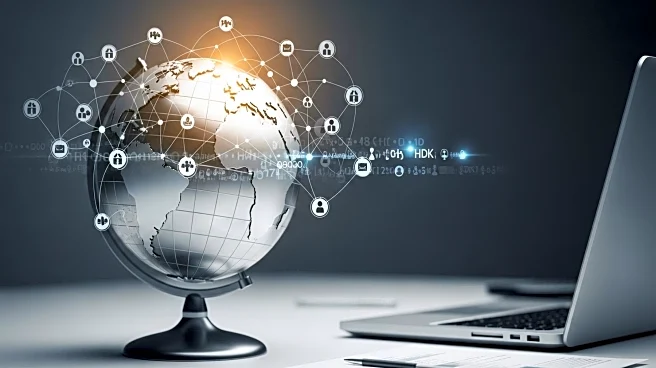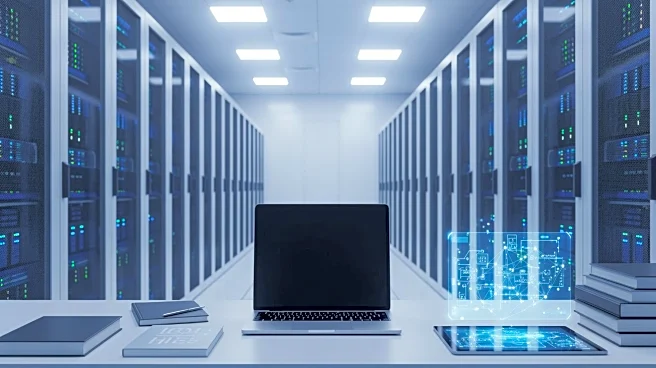What's Happening?
External Affairs Minister S Jaishankar emphasized the necessity of a global workforce in today's interconnected world during an event hosted by the Observer Research Foundation. His comments come in the context of President Trump's recent imposition of a $100,000 fee on H-1B visas, which predominantly affects Indian professionals. Jaishankar highlighted the demographic challenges many countries face in meeting workforce demands and called for a more efficient model of a global workforce. He noted that while the location of this workforce might be politically debated, the demand for such a workforce is undeniable. Jaishankar also discussed the evolving nature of trade and technology, suggesting that new trade arrangements and partnerships are emerging as countries adapt to global changes.
Why It's Important?
The discussion around a global workforce is significant as it addresses the challenges posed by national demographic limitations and the need for international collaboration. The H-1B visa fee increase by the U.S. could impact the flow of skilled professionals, particularly from India, affecting industries reliant on such talent. Jaishankar's call for a distributed global workforce model reflects a shift towards more flexible and inclusive economic policies. This approach could lead to new trade partnerships and economic strategies, influencing global markets and potentially reshaping international labor dynamics. The emphasis on building national capacities and self-reliance also highlights a trend towards multi-polarity in global politics.
What's Next?
Countries may need to reassess their immigration and workforce policies to adapt to the changing global landscape. The U.S. visa fee increase could prompt other nations to explore alternative partnerships and workforce solutions. As nations strive to build resilience against market and supply chain uncertainties, there may be increased focus on diversifying economic dependencies. This could lead to more robust international collaborations and innovative trade agreements. The ongoing dialogue about global workforce distribution and trade dynamics is likely to continue, influencing future policy decisions and international relations.
Beyond the Headlines
The broader implications of Jaishankar's remarks include potential shifts in global economic power structures. As countries build national capacities and explore new trade relationships, there could be a move towards a more balanced global economy. The focus on technology and digital infrastructure, as exemplified by India's Digital Public Infrastructure, may offer alternative models for other nations. This could lead to a more interconnected and technologically advanced global society, with implications for economic growth and development.










